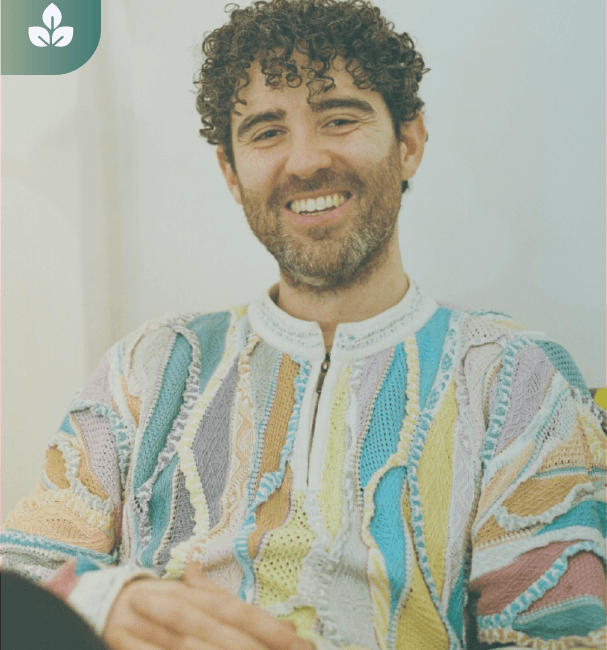
Tapping Into How Tech Enabled Dot & Key’s Success
About this Podcast:
Did you know that by 2024, the predicted global spend in the skincare industry will amount to $180 billion? The beauty industry has seen rapid growth that’s only been accelerated by the pandemic. Skincare brands are striving to deliver excitement to their customers including customizing ingredients to suit their skin, creating clean, cruelty-free products, being transparent about ingredients and in their delivery and fulfillment services. One brand that has mastered this soon after their inception is Dot & Key.
Episode Transcript:
Akshara
Welcome to a new episode of The Retail Podcast by Vue.ai. In these episodes, we speak to global change makers in retail, those that are moving the needle, pushing for change and creating impact. Did you know that by 2024? The predicted global spend in the skincare industry will amount to $180 billion. The beauty industry has seen rapid growth that's only been accelerated even more by the pandemic. But the biggest change in the last decade is that today's buyers are very conscious and driven by research and awareness. Skincare brands today are striving to deliver excitement to their consumers, including customizing ingredients to suit their skin, creating clean, cruelty free products, being transparent about ingredients and in their delivery and fulfillment services. One brand that has really mastered this soon after the inception is Dot & Key. Dot & Key has taken an unconventional approach to skin care, and they defined the idea behind their products as lifestyle needs that are often overlooked. And of course, they're out of the box formulations, clean ingredients and cruelty free products address skin care problems that we often overlook, and that makes them indispensable in our beauty cabinets. Today, I'm joined by Suyash Saraf, the co-founder of Dot and Key. Welcome Suyash. We're very excited to have him here with us today.
Suyash
Thank you. Thank you. I'm super excited for the conversation and thanks for having me over.
Akshara
Fantastic. So Suyash, let's kind of jump right in by talking about just how Dot and Key came to be and the success you've seen in the last two years because a market like this in India is highly competitive and it's pretty hard to break in and consumer needs are constantly evolving. So tell us, what was the idea of starting a brand like this and how has the journey been so far?
Suyash
Sure. So basically, about two and a half years ago, my wife and I wanted to do something very fresh and very interesting and we are racing with ideas. We suddenly came up to a point where we thought, let us think about things that we want, but no one's really fulfilling those for us. And that's the best point to start with for, for any sort of development or any sort of company. We realized, for example, I have a very dry hands. So I always found a hand cream but I never found a hand cream with sanitizer. So we thought that, let us point that and write that down and we will probably find something. So we decided to do something we couldn't find anywhere in India and we couldn't find any product globally for something like this. And we realized, there you go, where we see an opportunity so we can definitely make one of those. My wife is a swimmer, she she used to always have tanned skin after her swim and her hair used to be really frizzy. So we realized that there had to be something made, that there should be something that's made for dry, tanned skin after the swim and frizzy hair which stays after the shampoo. So we noted that down and like this, we needed about 50 different skin issues that we came across and we listed them down and we realized that the world is full of gaps. So let's fulfill it. And that's how we came up with the first set of products fulfilling these needs. And we went to market and we thought online is the only way going because we are online only and we can target this niche segment and hopefully people would like us. And that's how Dot and Key was born 2.5 years ago. Our name doesn't change what we do, right? We identify the tiny dots, our skin issues, and we provide the key or the solutions to these issues. And that's what I think you did. And that's that's how we got into this.
Akshara
That's funny, because that was going to be my next question, because I was curious to understand how the name Dot and Key came into the picture - that makes complete sense. And I think you pointed out something really interesting. You talked about most beauty brands today are just selling you a product. But I think what's different about your story is that you found a gap for something that you experienced personally, which is why you felt like this was something that would be on the market. And I think that's really important because very rarely do brands listen to the problems of consumers and actually formulate things for that. So that's probably why you didn't also find what you were looking for early on, and that's how you came to realize that there were so many gaps. Yes, that's really interesting. So today, the beauty industry is somewhat a saturated market globally, but in India it's slightly different because I think, like we talked about, consumers are starting to be a lot more aware. They're starting to make smart choices, do research about the ingredients that are put in their products. So I wanted to kind of understand, you've been able to capture shoppers attention, and that's such a mammoth task because you've built a strong online presence since you launched. You have over 100,000 followers on Instagram. There's so many collaborations with various influencers. So in a market like this, where there's so much information, there's so much exposure to stuff, how have you been able to stand out and consistently get the attention of shoppers today?
Suyash
So it's a very important question and we ask yourself this question every day, because there is no right answer for this. So I believe actually building consumer brand is more like a marathon rather than a sprint, because you can do everything very fast, day on day, week on week, month and month. And there are no shortcuts to this. And what we've done over time is we've focused on what we truly believe consumers want. And we believe that consumers do want a lot of self-love and they're looking for that coming through their products. And our products do make them feel great about themselves, really deliver what we can make as a brand in terms of the efficacy of the product. And we genuinely make products which are truly world class, today we are selling in India tomorrow, our products can go overseas very easily because that's the kind of standard we keep for our products. So Indian audience, which is kind of exposed to a lot of brands from from abroad, but loving an Indian band is a very big deal for us, and we targeting those audience who are buying very expensive skincare ingredients which are being imported from abroad, and we match that standard and we try to buy Indian products because they can be equally good, if not better than them. And there is the audience always if you have a good product. So that's what we're focusing on as a brand. And we do try to reach out to these audience to talk to them, understand what they do and launch products based on what do they really require. So that is one of the reasons why we feel like we are growing as a brand and people are showing us a lot of love.
Akshara
You talked about consumers expecting sort of the same standards as international beauty brands, right, but there is also the pricing angle there and there's also the accessibility angle. And those are two big things as well that Dot & Key can offer, although I think a lot of international brands, especially during a time like the pandemic when you had access to no beauty, all of your stuff is over, it runs out, but you don't have access to buy any of this stuff. And then you start kind of exploring, doing your research. I mean, that happened to me also personally. So I'm also looking at stuff and I'm like, OK, all my things are over and I want to buy new things. Is this also, you know, something that has been an advantage for you? Because the import costs of these really expensive products or the duties on them and just the accessibility to really good skin care that can constantly be replenished every few months. Is that also been something that's an advantage, especially in the last year?
Suyash
Of course, of course. So basically what's happened over time is that consumers think that Indian skincare is not great and if it's foreign or imported, then that's really good - which is absolutely not true, because sometimes they use the same ingredients, the same quality as foreign brands. But the pandemic has definitely shown the Indian audience that Indian products are as good as well made as imported ones. I think this has definitely helped create a bunch of homegrown, well-thought-of, great product quality skincare brands in the market and which has been very good for the local players.
Akshara
Yeah, absolutely, and I kind of want to jump in a little bit into the shoppers itself today right. Let's assume a lot of consumers right now are typically or modern millennials and GenZ, and they're a lot more aware of the products that they use in comparison to how skin care and beauty was looked at even a decade or two decades ago. And they care a lot about ingredients that go on their face. They expect transparency. They expect you to tell them exactly what's in the product and all of that. And I think one really important aspect in the last couple of years has also been packaging. I think that's something that's really evolved in skin care and whether the product is creulty free. So one thing that I noticed and I think that that could also be just my viewpoint, but there's something about increased packaging also that's very approachable. Right? It doesn't make you feel overwhelmed, like you don't know what to do with it, like some really expensive luxury brands where you see the product and you're like, oh, I'm not even sure if I want to touch that because it's just I don't know what to do with it. So how are you making even beauty and skincare approachable? Because there's not much information and education around skincare and beauty in India specifically, and we're always, always more tuned towards the very ayurvedic and old world stuff. But there's not much education around like acids and how often you use them, how well you use them. So how are you bringing about that kind of education and interest in today's shoppers?
Suyash
So so what's happened over time, Indian shoppers are very conscious shoppers right now, they are with social media, like Instagram and Facebook and YouTube. I think the Indian shoppers have access to a lot of information from abroad, from different countries, from products across the globe. So the world has become flat. So because of that, there are a lot of global ingredients which are trending right now, which makes which makes consumers want to explore that, want to understand them, want to use, want to reap the benefits of them. We've been successful in doing this using Instagram and YouTube. We've got these products you've got into the portfolio and we've made sure you've gone out there and educated consumers about the benefits, how to use it, when to use, which product to use. Consumers don't make it back to us regarding this because consumers have really understood this. Consumers have really enjoyed or enjoyed learning about it. And now slowly these ingredients are coming into mainstream. And a lot of international players are introducing this concepts into India. But fortunately for the Indian consumers, it started, the whole trend of these ingredients products have been started by companies in India.
Akshara
Right. Absolutely. That's that's so true and I think it kind of brings me to my next question. I think a brand like Dot and Key has certain very important pillars that drive the business. One is, of course, your community itself. You're so in touch with your users as opposed to how brands approached consumers even a decade ago. Today, you probably get about a 1000 DMs with both positive comments as well complaints or anything around fulfillment. And so very much in touch with the consumer. And that helps you inform your product development process. Right. So can you share any kind of interesting insights or things that have really helped from the community perspective that have helped you kind of implement that back in your product development of your product roadmap?
Suyash
Absolutely. I think I think crowdsourcing seems like a very interesting, impressive word. But honestly, like online native brands of crowdsourcing is something which is very normal for us now because it's part of our ecosystem. We are so close to consumers and we talk to them so often like through DMs, messages through probably texting, through calls and we realize that if we're in touch with our consumers, it's very easy for us to launch the products. Because they tell us this is what I want, please make this this is what I want, please make this. So what happens is, over time, you develop a very strong bond with consumers in your community in general, and they keep on throwing up certain keywords and they want certain products that they want. Like, for example, we have serum for underarm and masks for the underarm that we launched like two and a half years ago. And a lot of consumers have been telling us we need something for the booty, we need something for the booty. Like we really want a product that would help us, kind of reduce the cellulite, reduce the darkness in the booty area, which was quite uncommon, unconventional for us as a brand. And honestly, we never thought that we do this. But two years into the brand, a year and a half into the brand, we realize that consumers have been constantly asking us for this and they wanted a solution.
Suyash
So we introduced the product to the market. And it's been a good success. Apart from this, like, you know, what we've seen over time is like, for example, Niacinamide was trending globally. No one in India was doing the product - Niacinamide based product. So we thought, let's let's get this product onto the market, so that consumers can really want this. We've seen this over DMs, people have messaged that we really want to Niancinamide products and hopefully it's a higher percentage. So we introduced a product based on completely what they had been asking us to do. So that is that is the basic thought we now have an individual products. Some people come to us, they want certain benefits, certain ingredients, because they are so well informed because of social media. And we try to incorporate everything that they want so that people do like as I said, we don't create products, consumers do for us. All we do is we think those inputs put into a physical product and given back to them. So it's them that build the product now.
Akshara
And that's absolutely fantastic, because at the end of the day, your consumers are driving your product. The loyalty is again there because they know that you are listening to them and you're creating something for them as opposed to something that's completely in a different direction. So that's, that's fantastic. I love the thought that community is the one that creates your product. I also thought we could touch upon another pillar of retail and shopping. That's very important today, and that is just the experience even online. So I just wanted to understand, what are some of the interesting things that you're able to do with technology to make sure that your customers have it easy on the site? It's convenient from when they log in all the way to the time they check out what is the experience like and how you design that or what are some of the steps you've taken to personalize that journey from the beginning to the end for each customer?
Suyash
So what what we've done is we map where customers go. What do they click on? Where do they spend time at? We use use heat mapping and we kind of understood what to do. And once that is done, we have a couple of software that we use which helps us create customer journey flows, which automates emailers, SMS, banners and things like that on the website. For example, if someone's on a certain page for more than 20 seconds, they will get a pop up - probably give them a discount or probably like up selling another a product or just saying, this might be the best product and don't miss out. So we kind of create these flows, so that our communication with our audience is personalized and depending on probably we have flows, depending on a consumer buying product like three months ago. Like they've come back to our website, probably buying some other products and we know the skin type. We know this guy could probably show them a banner which show that for acne prevention, you might try these products as well. So it's very personalized and very communicative so that people do come on a website and really enjoy the buying experience.
Akshara
Do you feel like you will have a physical space eventually, even things die down with the pandemic so people can come and learn things at a store? Or do you have any plans of expansion into a physical space?
Suyash
Of course, I think every online band wants to be physical as well, ultimately. And you probably want to have a store or stores of our own as well in the future. But in today's generation and today's era having personalized online store is key because online store is also a store. It has to be seen like a shop front and personalization using technology is something which is absolutely essential and which is very scalable in today's world, so that you can reach all the relevant audience. And of course, moving forward, it's always good to have physical stores so that people can touch and feel and have your product in their pocket within 30 minutes or one hour from then and it's possible. So for that reason, I would definitely want to have an experience based store.
Akshara
Yeah, absolutely, I think experience stores are what the future's going to look like, it's going to be a perfect middle of online and offline where you can learn a lot online and then go experience the product and everything offline. So absolutely, yeah. That kind of brings us towards the end of our podcast. I do have another question for you. So we've been seeing a lot of D2C brands really push the limits in terms of innovation and just kind of appeal to various types of consumers, especially through tech. And it's like there's AR filters, lots of educational content, auto replenishment features, using historically for smarter recommendations. There's a lot happening in terms of convenience. Do you where do you see home grown D2C brands going in the next few years in India? How do you think it's going to evolve? How do you think consumers are going to respond to it? What are your thoughts on.
Suyash
I think home grown D2C are the way to go, because it's founded by people who are really passionate about what they do and and probably they want to create something which is larger than life. Honestly this energy and this passion, the speed with which the work, the kind of thought process of stepping onto the table is so dynamic that they will definitely grow and they will dominate spaces and probably create mammoths going forward. I'm seeing a lot of them being listed on the stock exchange very soon and I have a thought when it comes to brands and business, you know, it's no longer the big that need to small. It is the fast that needs to slow. So using this philosophy, I think people see brands are agile. They're fast in the modern world. And as long as they keep themselves, that there's no stopping them.
Akshara
Absolutely. And I will end the podcast with the last question, which is any sort of advice around entrepreneurial advice for founders in this space in D2C home grown spaces? What are some of the three most important business lessons you would share with them, especially in the early phases? What of the things they should pay attention to?
Suyash
I think the number one thing is you need to start something that you're passionate about. If you want to make money and start a business I don't think this is the type to do it, especially modern D2C businesses, you have to really passionate about what you're doing and create something that interests you and your audience. Because if it doesn't interest you,I'm pretty sure after a certain point you lose interest and you lose the energy, first point. Second point, I'd say you need to look at the bigger picture, like, what do you want to do with your business five years down the line or how you see yourself when you're starting out. So if you see yourself as something, if you see yourself at the top of what you're doing and still enjoy going ahead, I think you got to do it. Third thing, I strongly believe that of tech enabled businesses scale up faster than traditional businesses. So like any business can be tech enabled and any business can be scalable. Just the right model has to be found doing it. So if any entrepreneur is thinking of starting a business, you should think about using technology as much as possible, reduce hassles in the longer term, it'll reduce it will reduce leakages and it'll help the audience much, much, much, much, much faster in a traditional business. So use technology, leverage it and see how it can be done, because honestly, technology is a very abused word. But if it's used to its full potential, any business can scale to any limit. So so embrace it and move forward using it, and I'm sure if you do it passionately, there's no turning back.
Akshara
Amazing, I think these are some fantastic lessons, and I'm sure our listeners will find it very valuable. Thank you so much Suyash. I felt like we we learned a lot about that key and just the direction you're headed in as a brand. Clearly, home grown D2C brands are the way to go and we're excited to see what's coming up in the next few months and years. Thank you so much for being with us today.
Suyash
Thank you. Thanks for having me. And I really enjoyed this conversation.
Akshara
For more information and more podcasts on topics like this, please log into Vue.ai and check out our resources section. You'll be able to hear the stories of multiple brands across the globe talking about their success and their definition of what retail is today. Thank you so much. And we'll see you soon. Bye.
Meet your speakers:

Suyash Saraf
Co-founder, Dot & Key

Akshara Subramanian
Director, Customer Marketing, Vue.ai







